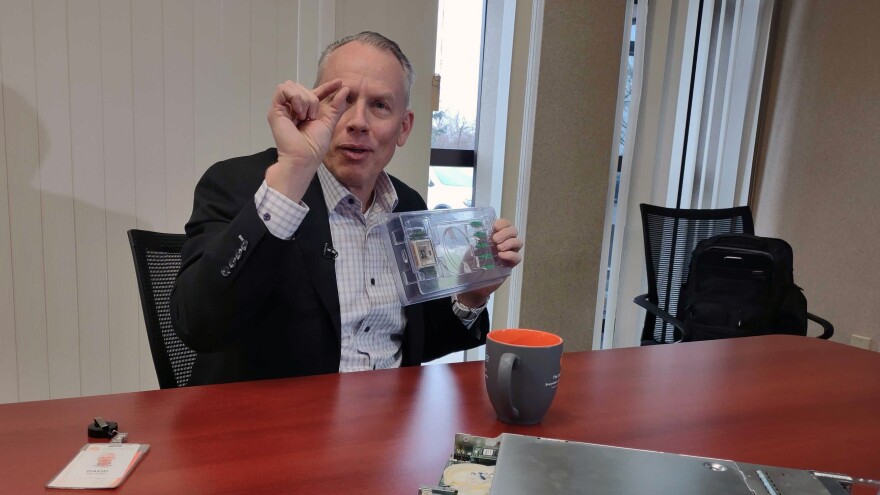- The U.S. Commerce Department has announced 31 communities across the United States have been designated as tech hubs, but the Lehigh Valley didn't make the cut
- The designation comes with a $75 million grant intended to boost American production of critical technology like semiconductors, medicine and robotics
- The program, proposed by U.S. Rep. Susan Wild, is part of the bipartisan CHIPS and Science Act
BETHLEHEM, Pa. — The Lehigh Valley missed out on a $75 million federal grant that could have boosted local production of semi-conductors, the U.S. Commerce Department announced Monday.
The grants are intended to jumpstart tech and science sectors by creating designated tech hubs across the country.
The program, proposed by U.S. Rep. Susan Wild, D-Lehigh Valley, was adopted into the bipartisan CHIPS and Science Act, which aimed to boost American production of high tech resources after the coronavirus pandemic exposed weaknesses in the country's supply line and logistics network. The three-term Democrat said she was disappointed the region was denied a grant but believes the valley is stronger because the application process sparked coordination and collaboration among the application's members.
"I will keep working to make sure we benefit from other provisions of the CHIPS Act, and when this tech hub designation comes up again, we will continue to try to get a hub here," Wild said.
A coalition of Lehigh Valley businesses, governments, education centers, organized labor and economic development organizations banded together to back a tech hub application in August. The application didn't include a specific plan on how the money would be used — that would have come following a later round of applications.
"We learned so much more about our semiconductor sector and have developed a strong coalition to help it grow. This is just the beginning of a newfound focus for the Lehigh Valley."Lehigh Valley Economic Development Corp. CEO Don Cunningham
The overall idea was to boost production of semiconductors, the microchips essential to modern electronics. The first solid-state transistors were first produced in 1947 at the former Western Electric facility in Allentown, near where Coca-Cola Park stands today.
The Lehigh Valley Economic Development Corp. served as the front face for the application. Don Cunningham, its CEO, said in a statement Monday that they recognized the consortium faced long odds. It seemed unlikely more than one applicant would be picked from any state, and Philadelphia and Pittsburgh have more developed tech industries than the Lehigh Valley.
"We learned so much more about our semiconductor sector and have developed a strong coalition to help it grow. This is just the beginning of a newfound focus for the Lehigh Valley," he said.
The companies Broadcom, Coherent, EMD Electronics, Evonic, iDEAL Semiconductor, Intel, Infinera and Olympus signed up to be partners on the proposal. So did Lafayette College, Lehigh University, Lehigh-Carbon Community College and Northampton Community College.
Instead, President Joe Biden announced 31 tech hubs grant designees this afternoon. The closest to the Lehigh Valley is the proposed Greater Philadelphia Region Precision Medicine Tech Hub, which is being led by the Ben Franklin Technology Partners of Southeastern PA.
That consortium would link groups in Pennsylvania, New Jersey, Delaware and Maryland to research new ways to diagnose, prevent and treat diseases, according to the Commerce Department.
Going in, the Lehigh Valley consortium hoped the size of the grants could work in the region's favor. The grants would prove to be a relative drop in the bucket for many of the multi-billion-dollar companies working in more established tech hubs like Silicon Valley and Seattle.
"In the world of technology, $75 million may go further helping a smaller market with a solid foundation grow very quickly," Cunningham said in August.


